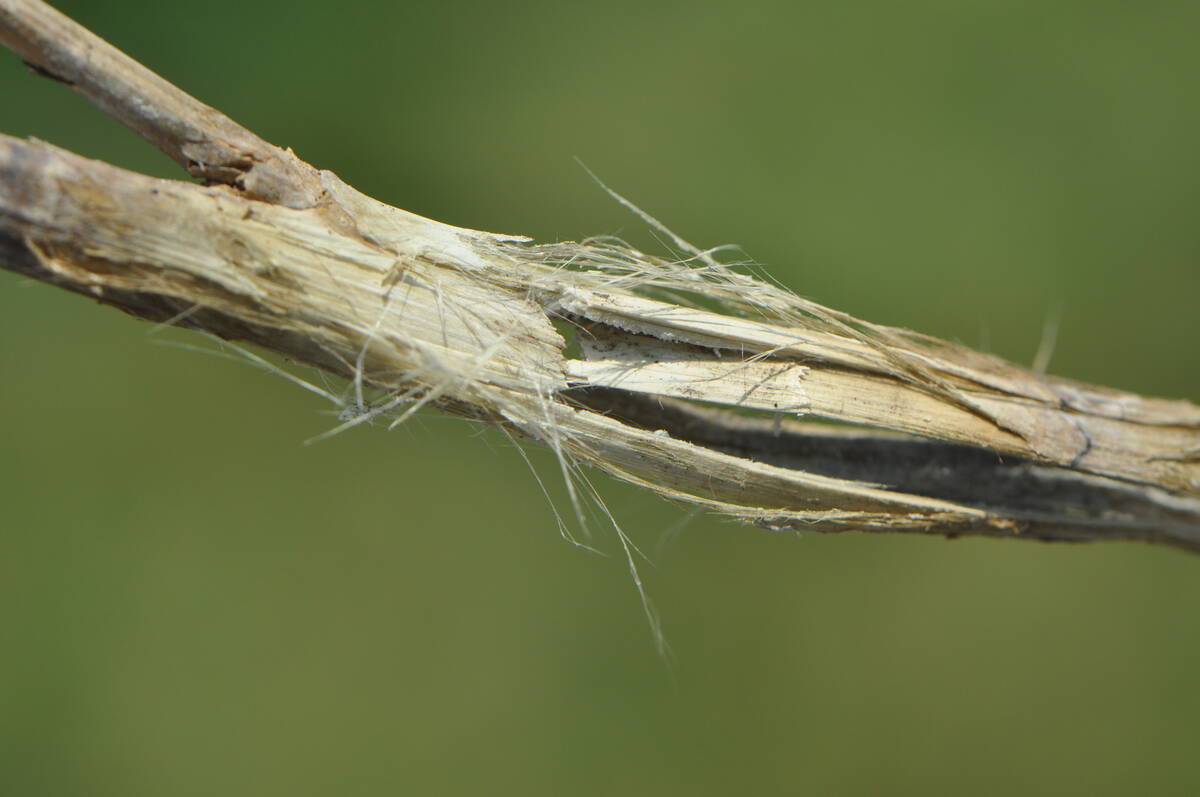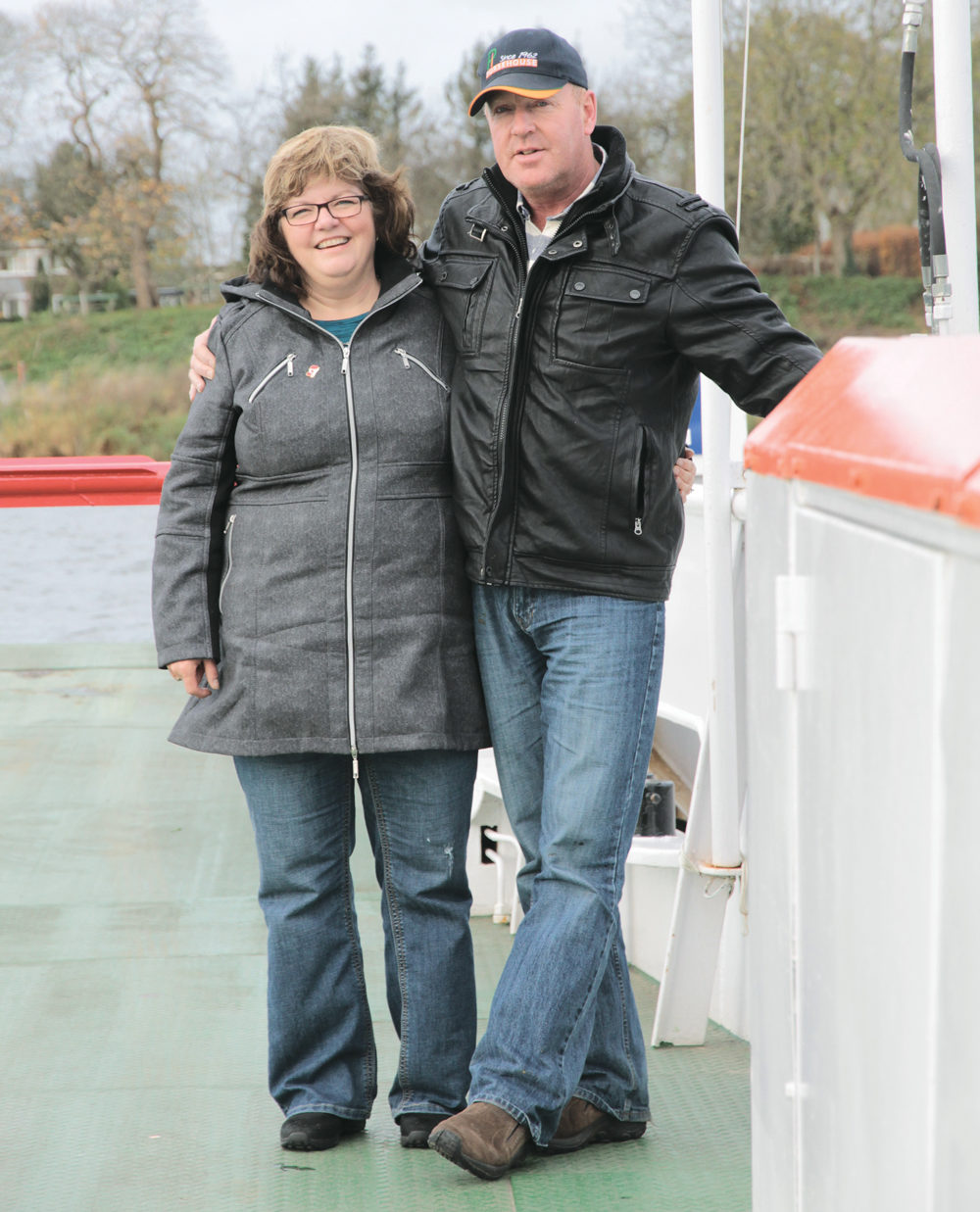Young agriculturists looking to return to the family farm will face challenges — high input costs, soaring land prices, labour shortages and transportation concerns, just to name a few.
But the biggest challenge for many fresh-faced farmers is how to work with their parents to establish a succession plan, said Cedric MacLeod, of the New Brunswick-based MacLeod Agronomics.
“There’s profitability in the industry — the challenge is how do we get that equity turned over; how do we get Mom and Dad to engage in an active process that allows us to move these assets,” MacLeod told a young farmers’ forum at last week’s Keystone Agricultural Producers meeting in Winnipeg.
Read Also

Manitoba sclerotinia picture mixed for 2025
Variations in weather and crop development in this year’s Manitoba canola fields make blanket sclerotinia outlooks hard to pin down
The first step? Good, regular communication.
“Have business meetings, have an agenda, keep minutes, make notes,” he said.
Everyone has heard the horror stories, said MacLeod, regaling the assembled youth with tales of sons and daughters who worked for years, only to find that they had earned no stake in the farm, no equity and no guarantee of inheritance.
“If it’s not written down, it didn’t happen,” he stressed.
If you’re working on the farm, putting in crops, harvesting, and making management decisions, MacLeod said that should be considered sweat equity — something that should count towards the long-term transfer of equity and assets. This should also be a way to reduce the amount of capital required to take over an operation when the time comes, he said.
While many new farmers talk about having problems accessing capital, the planning specialist said the real problem may in fact be access to equity.
But gaining access to the family farm still has to be a respectful process, one that recognizes the hard-won expertise and years of long hours put in by previous generations.
And if things don’t go your way at every business meeting?
“Don’t sulk, don’t drag your feet on your way out the yard… hold your head up,” MacLeod said.
From the Country Guide website: You want to fire dad?
Leaving a legacy
Not all responsibility falls on the next generation, however. MacLeod said that those in the baby boomer generation need to prepare as well, and can’t expect their children to finance their tax bills or their retirement.
“You are not your farm, you are people who have wives and husbands and children, and that is your legacy — not just the farm,” he said. “Your farm is just a vehicle to produce profit, so treat it that way.”
That means the older generation can’t put every penny back into the farm either, some has to be put aside for retirement. Wealth management is as important as wealth creation, the business adviser said.
“When all is said and done, you’re going to want to have some money in your back pocket that you don’t have to drag it out of the farm and pay a bunch of tax on,” he said.
It’s a message that resonates with young farmers like Fiona Jochum, who is enrolled in an agricultural diploma program at the University of Manitoba.
“Planning is such a huge thing now, on lots of farms there are multiple generations running the operation, and it can be really difficult,” said the 19-year-old, whose family operates a 4,000-acre grain farm near St. Francois Xavier.
Jochum would like to finish university and then spend some time working in and exploring other aspects of the agriculture industry before returning to the family farm.
But she’s confident in her family’s succession plan.
“My dad actually went through the diploma program I am in, and as soon as he came out of the program the farm went through a whole succession plan and turned into a corporation and now he’s the manager,” she said, adding that although her grandfather has officially retired, he still enjoys helping out.
That’s something that MacLeod said is important — finding new roles for founding generations, so that succession isn’t equated with leaving the farm entirely, or worse yet, death.
“If Dad loves driving the combine, then he should keep driving the combine,” he said.
Mark Owen has been farming for three years, along with his family, on their operation near Graysville, and agrees that all generations need to be incorporated in future plans.
“I think that a lot of people kinda forget about the fairness factor for the older generation — having that respect for them is pretty important,” said the 22-year-old university student. “They built these farms.”
But fairness can be complicated, especially when there are siblings involved.
“They come back and they want their share, when it’s been you that stuck around and worked the 20-hour days to get the crop in and take it off,” MacLeod said. “You cannot be responsible for financing the buyout of your siblings, fair is not equal.”
However, that doesn’t mean siblings are cut out of the inheritance, it just means it will take more planning, more communication and possibly some outside expertise to make it work.
Owen has one brother, but he isn’t interested in returning to the farm and they already have a succession plan in place that takes that into account.
“I feel fairly confident in our succession plan that we’ve got going… it’s going really well,” he said.
The final message MacLeod left the young farmers with is that the time to start looking at succession is now.
“Your challenge is to identify the right process to get that equity over time,” he said. “And you want to do it while there is still time.”



















